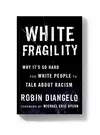The state of Oregon's failed experiment to decriminalize hard drugs comes to an official end on Sunday, and data from the state's judicial department reveals just how disastrous and ineffective Measure 110 was. Only 85 people issued citations sought addiction assessment during the three years of decriminalization, and thousands died from overdoses, data shows.
Oregon became the first state in the nation to decriminalize possession of illicit drugs - such as heroin, cocaine, methamphetamine, and LSD - when voters approved Ballot Measure 110 in Nov. 2020. The law took effect on Feb. 1, 2021, turning possession of hard drugs from a criminal misdemeanor into a Class E misdemeanor, which warrants a citation of up to $100. The punishment could be compared to receiving a traffic ticket.
Measure 110 citations had granted those in possession of illegal drugs two options: pay a $100 fine through the court system or call a substance abuse helpline in exchange for their citation being waived. Progressive lawmakers intended to use cannabis tax income to fund the state's treatment system to the tune of hundreds of millions of dollars, but data shows hardly anyone paid the fine or called the helpline.
In March, state lawmakers voted to recriminalize drug possession after their effort at decriminalization resulted in heavy open-air drug use and a significant surge in overdose deaths. Oregon legislators hailed the measure as an approach to addiction, but in return, decriminalization was a hard lesson learned.
The Oregon Judicial Department released circuit court data from Feb. 2021 to Aug. 2024, which was published by the Oregonian. It revealed that out of the $899,413 fines issued under the measure across all circuit courts, the state only collected $78,143.
Officers cited 7,227 people under Measure 110 statewide, and 89 percent of them were convicted. However, nearly all convictions were because people skipped their court dates. Out of the 7,227 people cited, only 85 of them completed their substance abuse screening through the helpline, which was needed in order to have the citation dropped.
The report revealed that 54 percent of citations were for methamphetamine, 31 percent were for fentanyl and other Schedule II drugs, 7 percent were for heroin, 3 percent were for oxycodone, and 1 percent were for cocaine, per the data.
In Multnomah County, which encompasses the state's largest city impacted by drug abuse, Portland, police issued 1,917 Measure 110 citations. The conviction rate was 93 percent because of failure to appear in court. Only 16 people in the county called the helpline to complete the substance abuse screening.
The most citations (2,036) were issued by the Medford Police Department, of which 1,236 were linked to methamphetamine. Oregon State Police issued 1,756 citations, the Grants Pass Police Department issued 1,642 citations, and the Portland Police Bureau issued 1,332 citations. Other law enforcement agencies across the state issued either a dozen or just one, according to the Judicial Department.
Between 2021, when the bill took effect, and 2023, the most current year for statistics, 3,086 people died from opioid overdoses. The Oregon Health Authority noted that "The number of opioid overdose visits to [emergency departments] and [urgent care centers] in 2024 are similar to 2023."




 Diversity Is Our Strength
Diversity Is Our Strength 




Jump in the discussion.
No email address required.
I still get very triggered over this.
They could've legalized possession without simultaneously legalizing open-air drug markets and public use of drugs. Instead it was treated as an all-or-nothing.
Jump in the discussion.
No email address required.
Because the people that want their fun party substances to be legal aren't going to be happy with plain "it's decriminalisation". They want all-or-nothing, let me buy heroin from a vending machine. Because I'm a sensible, responsible citizen with a good job who only indulges on the weekends and I can control my consumption and I don't have a problem at all, and it's not fair that technically I'm a criminal and I have to buy my shit from sketchy shady dudes.
So they argue the case that everyone is gonna be a sober, responsible user if only the law is changed. It's the prosecution of drugs that causes the problems, you see, not the fact that some people become junkies and don't give a darn about anyone else than themselves.
And then the bleeding-heart types push ahead with changing the laws, and guess what? Junkies who don't give a darn set up in public using and dealing drugs. Wow, what a surprise, so shocked at this outcome!
Jump in the discussion.
No email address required.
Midwits not realizing that 105 IQ ideology only works for 105 IQ people, classic
Jump in the discussion.
No email address required.
More options
Context
More options
Context
And it was so obvious this would happen because it already did with legalizing weed. Like 6 months after that I'm walking down the street in SE Portland and there's three teenage girls sitting on the sidewalk smoking. All of the promises about how it would only be for adults immediately went out the window.
I am so fricking tired of the disingenuous bullshit the drug legalization people are constantly pushing. We only want medical marijuana legalized. Then we only want marijuana legalized for adults in their own homes. Then okay, yeah, we lied about that too, we want kids doing it out in public. But this is only about marijuana, nothing else. Oh wait, we lied about that too, this has always really been about legalizing fentanyl, meth, and crack from the beginning.
Jump in the discussion.
No email address required.
Jump in the discussion.
No email address required.
More options
Context
More options
Context
More options
Context